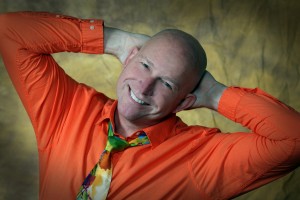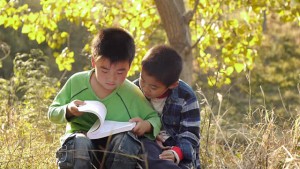We are now in the midst of the Season for Peace & Nonviolence. It begins with the anniversary of the assassination of Mahatmas Gandhi on January 30th and ends with the anniversary of the assassination of Dr. Martin Luther King on April 4th. The season is meant to highlight the value and importance of living in peace and nonviolence, in love, harmony and respect for all humankind. It’s aimed at getting us into the habit of discovering and actualizing ways of resolving our conflicts and differences in ways that are beyond violence and war.
Of course the Season is inspired by the great nonviolence movements of both Gandhi in India and King in the USA as well as more recently that of Mandela in South Africa. We saw where the power of nonviolence led to the liberation of the entire nation of India from the tyranny of the British Empire and the creation of a nation of harmony. Playing upon the fundamental belief that at our core human beings are intrinsically loving and compassionate and abhor injustice and cruelty, Gandhi’s movement galvanized national and international opinion towards a more fair and just reality.
In the USA King employed the same philosophy of Nonviolence for civil rights of African Americans and then the inclusion of women, Latinos, gay & lesbians and other’s disenfranchised and marginalized by the system. The same results took place as in India. Playing upon the same belief in the innate goodness of the human spirit, Dr. King knew that there would eventually be such an outcry against the injustices and cruelty of racism and discrimination in America that change would come. As people saw the news footage of people marching peacefully for justice and inclusion in the American dream and witnessed them being beaten with billlie-clubs, sprayed with fire-hoses and bitten by police dogs, public opinion was swayed and civil rights bills were signed ensuring the same freedoms to all Americans regardless of race, gender, religion or ethnicity.
The movement of Mandela was a bit different in that he went from nonviolent protest in the early days of his activism to a more militant stance right prior to his going to jail as a political prisoner, back to a more nonviolent approach upon his release from prison and subsequent ascendency to the Presidency. However, the real beauty of the movement of nonviolence in South Africa was what took place after liberation. Rather than taking the stance of punishing, killing or exporting all the oppressors and war criminals, they held hearings for forgiveness and reconciliation. The police, militia and politicians who had inflicted such cruelty and tyranny on the Black Africans were given an opportunity to face the victims and families who they had brutalized and sometimes killed. If they repented, expressed great sorrow and remorse and asked for forgiveness, they were granted such and allowed to integrate back into the larger society.
Of course this was unprecedented. This was a tactic clearly misunderstood and inconceivable to the western mental construct. Yet, it had its origins and genesis in ancient African cosmology and practice, of Ubuntu, which basically means human-ness or the practice of humanity towards others. Philosophy it is more about “the belief in a universal bond of sharing that connects all humanity.” Mandela and his cohort the Bishop Desmond Tutu resurrected this ancient African cosmology and used it to bring together a fractured nation and build a humanitarian consciousness based upon a way of life familiar to the African psyche. Fundamental to the African framework the challenges of a society are as much the responsibility of the collective as they are the individual. Truly, no man is an island, so any problems or challenges that exist in the society are as much the collective responsibility as they are of the individual. Thus the problem of apartheid and it’s cruelty and inhumanity were seen as a problem that could only be obliterated from the vantage point of the entire society taking responsibility and vowing to ban together and collectively forge a new direction. Thus, rather than punish the individual for atrocities they sought to forgive and reengage them in the process of solution oriented thinking. Thus what could have been a bloodbath and continuation of the violence ended with reconciliation and the development of one of the most powerful nations on earth in a relatively short period of time.
Yet as diverse and powerful as the nonviolent movements of Gandhi, King & Mandela were, they all actually had their genesis in the great movement of Jesus the Christ. It was actually Jesus who talked in terms of “turn the other cheek’” which meant to meet another’s violence or hatred towards you not with more violence or hatred, but with love, compassion, understanding and nonviolence. Jesus even went so far as to admonish us to “love our enemies.” His was a ministry that strongly believed in the ineffable goodness of the human spirit and that at our cores we were indeed created in the image and likeness of God as the book of Genesis proclaimed. Jesus whole philosophy and spiritual practice was based upon the belief generated in Psalm 82:6 that says, “You are gods, all of you are children of the Most High.” A statement that Jesus himself reiterated in John 10:34 in response to attempts to crucify him because of his proclamation of divinity. He reminded them that it is written in Hebrew Law and he was only upholding the scriptures, which are law, and so he got a pass, that time.
Jesus demonstrated that the core behind and intrinsic to the philosophy of nonviolence is inherent humanity or Godliness of the human spirit. Jesus postulated that at our core we are beings of love. Mandela says it best when he says, “No one is born hating another person because of the color of his skin or his background, or his religion. People must learn to hate, and if they can learn to hate, they can be taught to love, for love comes more naturally to the human heart.” So it appears the ancient African practice on Ubuntu had its origins in the cosmology of Jesus. Or perhaps, since we all know Jesus spent a great amount of his formative years in Egypt, which is in Africa, that perhaps these were principles that he learned from his studies in the mystery schools there. Whatever the case, it’s important that we understand that the philosophy of nonviolence is ancient and has its genesis in the fundamental belief that at our core, humanity are God-beings of love & light. It is upon this foundation that we build a greater humanity and a better world for us all.











